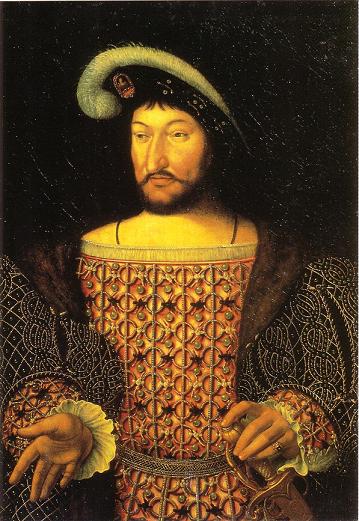|
Cardinal Du Bellay
Jean du Bellay (1492 – 16 February 1560) was a French diplomat and cardinal, a younger brother of Guillaume du Bellay, and cousin and patron of the poet Joachim du Bellay. He was bishop of Bayonne by 1526, member of the ''Conseil privé'' (privy council) of King Francis I from 1530, and bishop of Paris from 1532. He became Bishop of Ostia and Dean of the College of Cardinals in 1555. Biography Du Bellay was born at Souday, second of the six sons of Louis, son of Jean du Bellay, Seigneur de Langey, and Marguerite, daughter of Raoullet, Baron of Le Tour-Landry. Four of their sons survived infancy, including Guillaume, Martin, and René. They had two daughters, Renée, who married Ambroise Baron des Cousteaux, and Louise, who married Jacques d'Aunay, Sieur de Villeneuvr-la-Guyart. The fief of Bellay was located near Saumur in Anjou. He is said to have had his education in Paris. It is also speculated, however, that he studied at the University of Angers. He had a licenciate ''i ... [...More Info...] [...Related Items...] OR: [Wikipedia] [Google] [Baidu] |
His Eminence
His Eminence (abbreviation H.Em. or H.E. or HE) is a style (manner of address), style of reference for high nobility, still in use in various religious contexts. Catholicism The style remains in use as the official style or standard form of address in reference to a cardinal (Catholicism), cardinal of the Catholic Church, reflecting his status as a Prince of the Church. A longer, and more formal, title is "His (or Your when addressing the cardinal directly) Most Reverend Eminence". Patriarchs of Eastern Catholic Churches who are also cardinals may be addressed as "His Eminence" or by the style particular to Catholic patriarchs, His Beatitude. When the Grand master (order), Grand Master of the Sovereign Military Order of Malta, the head of state of their sovereign territorial state comprising the island of Malta until 1797, who had already been made a Reichsfürst (i.e., prince of the Holy Roman Empire) in 1607, became (in terms of honorary order of precedence, not in the act ... [...More Info...] [...Related Items...] OR: [Wikipedia] [Google] [Baidu] |
Léon Séché
Léon Séché (3 April 1848 - 5 May 1914) was a French poet. Biography Léon Séché was born in Ancenis. He died in Nice. Works * ''Les griffes du lion'' (1871) * ''Rose Epoudry'', Roman, 1881. * ''La Chanson de la vie, poésies''. Couronné par l’Académie Française, Didier, 1889. * ''Les derniers jansénistes, depuis la ruine de Port-Royal jusqu'à nos jours'', 3 tomes, 1891, Couronné par l’Académie française. * ''Les origines du concordat'' (1894) * ''Éducateurs et moralistes'', Delagrave, 1895. * ''Jules Simon'', 1814-1896, Figures bretonnes, E. Lechevalier, 1898. * ''Port Royal des Champs, Petit manuel du pèlerin'', suivi par ''Racine au Port-Royal'', L Chevalier, 1899. * ''Les œuvres poétiques de Jacques Pelletier du Mans'', Revue de la Renaissance, 1904. * ''Honoré de Balzac et ses démêlés avec Sainte-Beuve Charles Augustin Sainte-Beuve (; 23 December 1804 – 13 October 1869) was a French literary critic. Early life He was born in Boulogne, ed ... [...More Info...] [...Related Items...] OR: [Wikipedia] [Google] [Baidu] |
Johannes Sturm
Johannes Sturm (also known as Jean Sturm; Latinized as Ioannes Sturmius; 1 October 1507 – 3 March 1589), was a German educator and Protestant reformer, who was influential in the design of the gymnasium system of secondary education. Biography Sturm was born in Schleiden. In 1521 or 1522 he started studies at the school of St. Jerome, Liège, and went on to the University of Leuven. There he had a share in a printing press and issued several Greek works. In 1529 he moved to Paris, where in addition to selling books he was asked to teach and gave lectures on Cicero and Demosthenes. Influenced by the writings of Martin Bucer he adopted the principles of the Protestant Reformation. He participated in the attempt to reconcile Protestant and Roman Catholic parties in 1534. At the urging of Bucer and the unrelated statesman Jacob Sturm von Sturmeck, Sturm accepted a call to teach in Strassburg in 1537, and in 1538 he set up the Protestant gymnasium, the Schola Argentoratensis ... [...More Info...] [...Related Items...] OR: [Wikipedia] [Google] [Baidu] |
Protestants
Protestantism is a branch of Christianity that follows the theological tenets of the Protestant Reformation, a movement that began seeking to reform the Catholic Church from within in the 16th century against what its followers perceived to be growing errors, abuses, and discrepancies within it. Protestantism emphasizes the Christian believer's justification by God in faith alone (') rather than by a combination of faith with good works as in Catholicism; the teaching that salvation comes by divine grace or "unmerited favor" only ('); the priesthood of all faithful believers in the Church; and the ''sola scriptura'' ("scripture alone") that posits the Bible as the sole infallible source of authority for Christian faith and practice. Most Protestants, with the exception of Anglo-Papalism, reject the Catholic doctrine of papal supremacy, but disagree among themselves regarding the number of sacraments, the real presence of Christ in the Eucharist, and matters of ecclesiastica ... [...More Info...] [...Related Items...] OR: [Wikipedia] [Google] [Baidu] |


